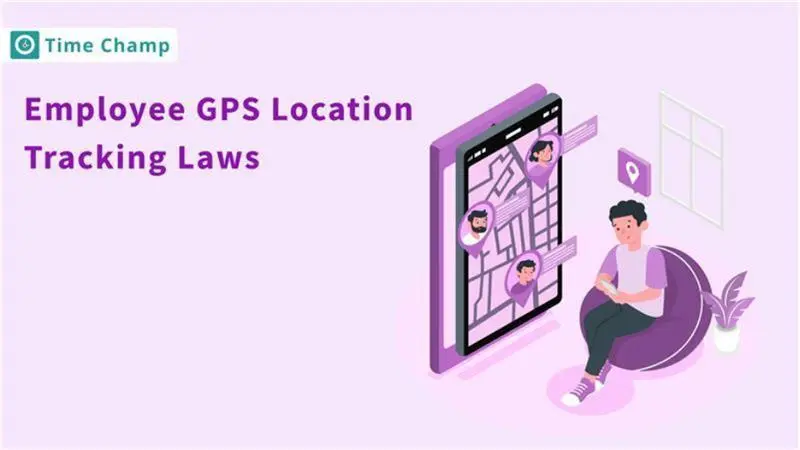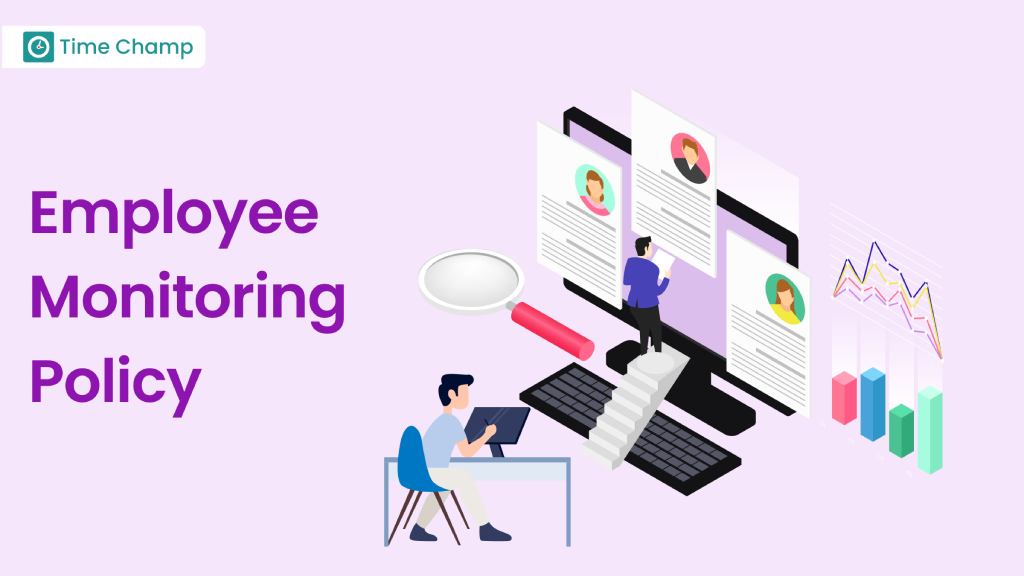Employers often rely on GPS tracking to manage mobile teams, but without a clear understanding of employee GPS location tracking laws, this can easily lead to problems. Mistakes in monitoring can lead to legal trouble, privacy violations, and damaged workplace trust. Without clear boundaries, even good intentions can turn into costly mistakes. This guide breaks down what’s legal, what’s not, and how to stay compliant while keeping your operations efficient and employees protected.
Are Employers Allowed to Use GPS Tracking in the U.S.?
Yes, but with important conditions. The use of GPS tracking by employers in the U.S. is considered legal, though there are clear laws and guidelines about how, when, and where it can be used.
According to the Electronic Communications Privacy Act (ECPA) , employers are allowed to monitor vehicles and devices owned by a company during work hours as long as the surveillance is used to fulfill a legitimate business need, e.g., checking travel routes, verifying attendance, or improving employee safety.
However, the rules are more strict when it involves personal devices or property. Tracking employee-owned smartphones, personally used vehicles, or monitoring location data outside working hours enters a grey legal area. In those circumstances, employers are required to receive clear consent from the employee and uphold clear written policies to guarantee their compliance and the safety of individual privacy rights.
A Breakdown of GPS Tracking Laws by U.S. State
GPS tracking laws vary significantly across the state. Although federal law (as per the Electronic Communications Privacy Act) gives employers permission to monitor company-owned resources, the states have introduced stricter rules, especially when it comes to employee privacy , consent, and personal equipment or cars. The following is a list of GPS tracking laws by state for employee monitoring.
1. Alabama
Alabama does not have a particular law regarding employee GPS tracking. Nevertheless, employers have the right to monitor company-issued vehicles or work devices. It would still be private or even criminal trespass under general state law to fix a GPS tracker onto personal property without seeking the authority of the owner.
2. Alaska
No state law restricts the tracking of GPS in the workplace. Yet, Alaska Stat. 11.41.270 (anti-stalking) applies if surveillance causes fear of harm. The employers are supposed to seek consent and not invasive tracking.
3. Arizona
Under Ariz. Rev. Stat. 13-2923 , employers may track employees on company vehicles/devices for valid purposes. However, tracking a person for 12+ hours or on multiple occasions without consent can be misdemeanor stalking.
4. Arkansas
There is no explicit prohibition on GPS tracking in Arkansas, and the use of tracking legitimate business on company assets is allowed. However, under Arkansas Code 22-8-105 , placing a GPS tracker on someone’s personal property without permission could be considered a privacy violation and may fall under anti-stalking laws if it causes intrusion.
5. California
California has one of the strictest GPS tracking laws in the country. The use of an electronic tracking device to monitor the location of any person without their consent is also considered illegal under California Penal Code 637.7. This even applies to company vehicles unless the tracking is related to a particular staff member.
Employers Must:
- Obtain explicit, written consent from employees before using GPS tracking.
- Limit tracking to work-related purposes only.
- Avoid tracking during non-working hours or in private spaces (e.g., employee's homes or breaks).
Violating this law can lead to legal penalties and civil lawsuits for invasion of privacy.
6. Colorado
Colorado does not exactly ban GPS tracking, though it implements laws against harassment and unlawful surveillance. Depending upon jurisdiction and state legislature, GPS tracking under Vonnie's Law can be criminalized when it results in emotional distress, fear, or harassment, and in stalking or domestic circumstance.
Employers Should:
- Use GPS tracking transparently and with employee awareness.
- Avoid continuous or invasive tracking that could be seen as intrusive.
- Provide a clear opt-in process, especially when using personal vehicles or devices.
7. Connecticut
Connecticut enforces strict rules on employee monitoring . An employer is required to advise employees in detail, prior to the usage of any form of electronic monitoring, including GPS, under the Electronic Monitoring Act .
Key Points:
- Written notice is required before implementing tracking.
- Employers have to specify the type, purpose, and scope of tracking.
- Failure to adhere to laws can result in fines and action by the state labor department.
8. Delaware
In Delaware, employers are allowed to track company-owned vehicles. However, installing a GPS tracking devices on any vehicle without the owner’s permission is not allowed. As stated in Chapter 5 of the Delaware Criminal Code, Title 11 , consent is required unless the tracking is done by law enforcement or a guardian monitoring a minor.
9. Florida
There is no specific GPS tracking law that addresses employers in Florida, yet there are general privacy and anti-stalking laws. According to Florida law Statute 934.425 , citizens possess a right of protection against illegal electronic surveillance.
For Employers:
- Tracking company-owned property is permitted.
- Tracking employee-owned property requires consent and should be limited to working hours.
- Monitoring beyond work hours without consent may violate privacy rights and lead to legal challenges.
10. Georgia
Georgia does not have a law that specifically governs GPS tracking by employers. However, under O.C.G.A. 16-5-90 (Georgia’s stalking statute), placing a tracking device on an employee’s personal vehicle without consent may be unlawful. Employers are allowed to trace company-owned vehicles legally as part of their business. In order to prevent legal complications, it is better to inform workers and get their consent, in the case of dealing with personal property.
11. Hawaii
Haw. Rev. Stat. 803‑41–42 makes it unlawful to use tracking devices without the tracked individual’s express permission, regardless of vehicle ownership. Hawaii Employers must always get consent before tracking.
12. Idaho
Idaho has no direct GPS regulations. However, intercepting communications is illegal under Idaho Statute 18-6702 . To maintain compliance , employers are advised to secure consent and avoid any privacy infringements.
13. Illinois
Illinois allows tracking of company assets but requires clear employee consent and limits how the tracking can be used. The Illinois Right to Privacy in the Workplace Act states that employers must behave in a way that does not offend the reasonable expectations of privacy of workers.
Employers Should:
- Track only during work hours and for legitimate business purposes.
- Disclose tracking practices in employee handbooks or agreements.
- Securely gain consent on personal device monitoring or vehicle monitoring.
Illinois courts have previously ruled in favor of employees when employers tracked them off-hours or without notice.
14. Indiana
Senate Bill 83 amends Ind. Code 35‑46‑8.5‑1 , prohibiting GPS tracking of persons or property without written consent. Employers must obtain consent before implementing any tracking in Indiana.
15. Iowa
Under Iowa Code 708.11A , employers are allowed to use GPS tracking on employees when it involves company-owned property and is part of a legitimate business activity. However, attaching a tracker without consent is illegal in Iowa.
16. Kansas
Although GPS tracking for work purposes is allowed, Kansas Statutes. 21‑5427 treats unwanted persistent tracking as stalking. To avoid legal issues, employers are encouraged to clearly inform employees about tracking policies and get their agreement beforehand.
17. Kentucky
Ky. Rev. Stat. 508.152 states that it is a misdemeanor to install a GPS tracking device on a vehicle without the owner’s consent. Employers must get employee permission, even for company vehicles in Kentucky.
18. Louisiana
Louisiana law (La. R.S. 14:323) forbids the utilization of a tracking device in the absence of consent. An exception excluding phones provided by employers is narrow; still, specific approval has to be given to vehicles.
19. Maine
Maine lacks GPS-specific law, but anti-stalking rules restrict tracking that causes distress or fear under Title 17-A, Maine Criminal Code . Employers need to make it clear in relation to practices that they are tracking and seek consent so as to eliminate misunderstandings.
20. Maryland
Md. Crim. Law 3‑802 defines electronic tracking without approval as stalking. Employers in Maryland must obtain permission before tracking any employee's vehicle or device.
21. Massachusetts
No GPS-specifi laws exist in Massachusetts but Section 43A of Massachusetts General Laws prohibits tracking that inflicts emotional distress. Employers need to get consent and prevent obtrusive practices.
22. Michigan
In Michigan, employees can be monitored by their employers using the GPS system in vehicles or equipment owned by the company without their permission. Nevertheless, attaching a GPS device to a personal car or tracking the movements of a worker on a personal trip without their consent is not lawful .
Employers Should:
- Clearly distinguish between company and personal assets.
- Use tracking solely for business purposes and during working hours.
- Secure employee consent if any tracking extends to personal property or after-hours movement.
23. Minnesota
The Minnesota law, Minn. Stat. 626A.35 , requires a court order or permission to insert a GPS into vehicles. The employers should secure the consent of the employee for vehicle tracking or mobile equipment tracking. This is transparent, and it prevents possible legal or data privacy issues in the workplace.
24. Nevada
Assembly Bill 356 prohibits GPS tracking without explicit consent for both public and private purposes. So, employers in Nevada need to seek informed consent prior to the installation of trackers.
25. New Hampshire
New Hampshire law (N.H. Rev. Stat. 570-A:2 a) does not allow tracking a person or their belongings without their permission. Employers are required to obtain permission even on company-owned vehicles.
26. North Carolina
GPS tracking without consent is illegal in North Carolina except for fleet vehicles owned by the employer. Under NC Gen Stat 14-196.3, employers may track company fleets after notifying employees, as long as the tracking doesn't violate their reasonable expectation of privacy.
27. New Mexico
In New Mexico, employers may track their employees through GPS devices. Nevertheless, stalking a person with the help of a tracking device in a manner that results in causing fear, pressure, or limits their freedom can be considered illegal, according to the New Mexico Statutes 30-3a-3 (anti-stalking law). Employers may legally track company-owned vehicles for business purposes but should avoid monitoring personal property or off-duty activity without the employee’s clear consent.
28. New Jersey
New Jersey law NJ Stat. 34:6B‑22 mandates written notice before tracking employees’ location , whether they’re using company-owned or personal vehicles. If this notice isn’t given, the employer may face penalties.
29. New York
New York allows employers to use GPS devices to monitor their employees who drive company-owned vehicles or with devices owned by the employer upon proper prior notice. Nevertheless, according to New York Civil Rights Law 50 , the unauthorized disclosure of personal information and location data can be regarded as an act of intrusion into privacy.
In Practice:
- Employers must notify employees in writing if GPS tracking is in place.
- The case of consent is strongly suggested, in particular, during BYOD (Bring Your Own Device) policies or personal-vehicle monitoring.
- Tracking during non-working hours or for personal activities is not allowed without clear justification.
30. North Dakota
No explicit GPS legislation in North Dakota but N.D. Cod. 12.1‑17‑07.1 criminalizes tracking that causes fear. Employers are expected to seek consent and not use intrusive patterns.
31. Oklahoma
Although there is no rule that applies to GPS, OK Stat 21-1173 says that non-consensual tracking might amount to stalking. An employer is not supposed to install a tracking device in the vehicle or on the personal device of an employee without consent.
32. Oregon
Oregon law (ORS 163.715) makes it unlawful to place GPS devices on vehicles without the owner’s consent. The employers can only monitor the company vehicles with the consent of the employees.
33. Pennsylvania
Pennsylvania law permits most employers to use GPS tracking of company vehicles or gadgets. Nonetheless, placing GPS trackers on personal property when it is not permissible is termed a privacy invasion.
Employers Must:
- Ensure that tracking is disclosed in writing.
- Refrain from using GPS tracking to monitor employee behavior outside of work hours.
- Avoid tracking personal vehicles or devices unless voluntary and documented consent is obtained.
34. Rhode Island
R.I. Gen. Laws 11‑69‑1 prohibit GPS tracking without the consent of the driver and occupants. Vehicle tracking by employers should be done by obtaining consent in Rhode Island.
35. South Carolina
No GPS-specific statute exists. However, South Carolina proposed Bill 3212 would require consent. Until it passes, obtaining permissions is advised.
36. Tennessee
In Tennessee, according to Tenn. Code Ann. 39-13-606 , there is no permission to install GPS on personal vehicles without consent. Employers may track company vehicles but must inform employees.
37. Texas
Texas law prohibits placing a GPS tracker on a vehicle without the owner's consent. According to the Texas Penal Code 16.06 , an employer is not supposed to put such a device in the car of a worker without their consent or knowledge.
For Employers:
- Tracking company-owned vehicles is permitted.
- Tracking personal vehicles, even if used for work purposes, requires prior consent from the employee.
- Tracking a smartphone or another mobile device does not fall under the law; however, consent is highly recommended.
Employers who fail to follow this can face criminal charges or lawsuits for unlawful surveillance.
38. Utah
Utah Code 76‑9‑408 bans the installation of GPS devices on vehicles without permission. Employers must get consent before tracking employee-owned vehicles or devices.
39. Virginia
Va. Code 18.2‑60.5 prohibits the deceptive placement of GPS devices without consent. Employer-owned fleet tracking is allowed, but consent is required in Virginia.
40. Washington
In Washington, the House Bill 1696 prohibit tracking that produces any kind of fear or distress. Employers may track company devices but must secure consent for personal vehicles/devices.
41. Wisconsin
Wisconsin law (Wis. Stat. 940.315) forbids placing tracking devices without the owner’s consent. Employers must obtain employee approval before monitoring any vehicle.
42. Wyoming
No GPS‑specific law exists in Wyoming, but under WY Stat 6-2-506 , anti-stalking statutes prohibit tracking that causes fear or emotional distress. Employers are advised to get consent and use GPS responsibly to avoid legal or ethical issues.
Several states still do not have specific laws that regulate the use of GPS tracking by employers. These include Mississippi, Missouri, Montana, Nebraska, South Dakota, Ohio, Vermont, and West Virginia. While tracking company-owned vehicles is generally allowed in these states, there are no clear rules for monitoring employee-owned property, making it important for employers to act responsibly and seek consent to avoid privacy concerns.
Comparing Rules for Tracking Work Devices vs. Personal Devices
When it comes to GPS tracking, the rules are quite different depending on whether the device or vehicle belongs to the employer or the employee.
Tracking Work Devices:
Employers generally have the right to track company-owned vehicles, smartphones, or equipment. Since these are business assets, tracking is legally acceptable, especially when it serves a valid purpose like managing productivity , ensuring safety, or improving logistics. Nevertheless, even when using work gadgets, it is advised that employers should inform employees about the monitoring activities as a way of ensuring openness and avoiding misunderstandings or mistrust.
Tracking Personal Devices:
The rules are much stricter when it comes to employee-owned devices or personal vehicles. In most states, employers must get the employee’s explicit consent before placing any GPS tracking on personal property. Surveillance of personal belongings of an individual without their consent can lead to a breach of privacy rights and, in instances, may even be considered against the law in matters of anti-stalking or anti-surveillance provisions. Additionally, tracking outside of work hours is usually not allowed, even with consent.
Creating a Clear GPS Tracking Policy for Employees
An effective GPS tracking policy assists with establishing guidelines, as well as with privacy legislation. It should explain why tracking is used, what will be tracked, when it applies, and how the data will be handled.
Start by stating the business purpose, such as safety, efficiency, or accountability . Then, clearly state whether it concerns the tracking of personal or company-owned devices and at which time the tracking will take place (e.g., it is only during working hours). Always include a section about employee consent, and make sure employees sign an agreement before tracking begins.
Most importantly, be transparent. A simple, honest policy builds trust and helps avoid legal issues down the line.
Smart Practices for Using GPS Tracking with Employees
To use GPS tracking fairly and legally in the workplace, employers must follow practices that respect employee privacy while supporting business needs. Here are key guidelines to ensure responsible tracking:
Notify Employees Clearly: Always inform employees about when, where, and why GPS tracking will be used.
Get Written Consent: Obtain signed consent, especially when tracking involves personal devices or vehicles.
Limit Tracking to Work Hours: Avoid monitoring employees during breaks, off-duty hours, or personal time.
Track Only Business-Related Activities: Focus on job-related tracking, such as routes, job locations, or time spent at the location.
Protect Employee Data: Store GPS data securely and restrict access to authorized personnel.
Keep Policies Simple and Transparent: Ensure your tracking policy is easy to understand and openly shared with all staff.
Allow Feedback and Questions: Encourage employees to ask questions or raise concerns about tracking practices.
How Does Time Champ Make Employee Location Tracking Easy?
Time Champ makes employee location tracking simple, accurate, and stress-free. With its built-in GPS tracking features, you can monitor your team’s movements in real time, whether they’re in the office or working remotely .
The platform assists you in monitoring the activity of the field staff, clock-in/out location, and also provides a clear picture of where your team is and where they are supposed to be, all through a single dashboard. Time Champ helps you stay informed about your team’s location, attendance, and tasks, making it easier to manage work efficiently while respecting privacy.
It’s designed with compliance in mind, employees are notified, and tracking only occurs during work hours or within set rules. That means no guesswork, no overreach, just the right balance between transparency and control.
Conclusion
Understanding employee GPS location tracking laws is essential for staying compliant and maintaining employee trust. With the correct usage of tracking tools, responsible use of current methods, and a proper set of policies, businesses can manage teams effectively without violating privacy boundaries. A balanced approach keeps your operations smooth and your team confident and informed.
Frequently Asked Questions
They can be used without consent or beyond work-related purposes. The acceptable use of GPS tracking includes only those cases in which tracking is transparent, confined to working hours, and aimed at business requirements, not personal activities.
Yes, in many states, employers are required to notify employees in writing before starting any GPS tracking. This is especially important when personal property is involved.
Yes, if tracking is done legally and transparently, the information sent by GPS may be used by employers to solve problems with attendance, deviations of routes, or time theft, as long as the policy is well-communicated prior to implementation.
Only clear, written permission from the employee is required. Without consent, tracking a personal phone, even if used for work, may violate privacy laws.








